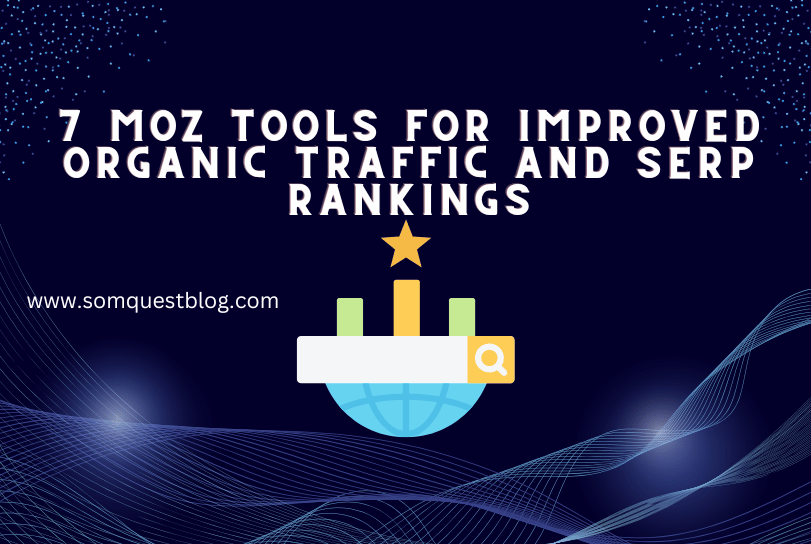What is SEO? Have you ever wondered how some websites appear at the top when you search for something online? That’s where Search Engine Optimization (SEO) comes in! SEO is like giving a website special powers to be noticed more by search engines like Google. It’s all about making websites better so they show up higher in search results. Imagine you have a favorite book, and you want everyone to find it easily in a huge library. That’s what SEO does for websites—it helps them stand out!
SEO has three important parts: on-page, off-page, and technical.
- On-page SEO is improving each website with the right words and links.
- Off-page SEO means getting other websites to talk about yours, like making new friends who tell others how great you are.
- Technical SEO ensures that everything works smoothly behind the scenes, such as that the website loads fast and works well on phones.
SEO is super important because it helps businesses get more website visitors without paying for ads. It’s like having a secret code to ensure people find what they want online. Ready to learn more about how SEO works and why it’s so cool?
Table of Contents
What is SEO? Fundamentals of SEO

SEO is an important aspect of digital marketing because it helps businesses to reach potential customers who are searching for products or services related to their industry. By optimizing their website for search engines, businesses can increase their online visibility, improve their brand awareness, and generate more leads and sales.
In a 2023 survey of SEO professionals worldwide, about 12.2 percent said that budget cuts and getting approval for content were the biggest obstacles to SEO success. Competition in search engine result pages (SERPs) was the second biggest obstacle, mentioned by 11.1 percent of respondents.
Optimisation strategies involve various techniques that help improve a website’s visibility in search engines. Here are some of the most essential optimisation strategies that businesses should consider:
Keyword Research
Keyword research is the foundation of any successful SEO campaign. It involves identifying the right keywords and phrases that potential customers use to search for products or services. Once you have identified the keywords, you can then optimise your website’s content around them. This can help improve your website’s ranking in search engine results pages (SERPs) for those specific keywords.
Content Creation
Creating high-quality, informative, and engaging content is crucial for SEO success. Search engines like Google value websites that offer valuable information to their users. Therefore, businesses should create content that answers their customers’ questions and provides them with useful information. Regularly updating your website with fresh and relevant content can also help improve your website’s ranking in SERPs.
On-Page SEO Techniques
On-page SEO techniques involve optimising various elements on your website to improve its visibility in search engines. Some of the key on-page SEO techniques include:
- Optimising title tags and meta descriptions
- Using header tags (H1, H2, H3, etc.) to structure your content
- Using descriptive URLs
- Optimising images with alt tags
Off-Page SEO Factors
Off-page SEO factors are external signals that can influence your website’s ranking in search engines. Some of the key off-page SEO factors include:
- Backlinks from authoritative websites
- Social media signals (likes, shares, etc.)
- Brand mentions
- Online reviews and ratings
By implementing these optimisation strategies, businesses can improve their website’s visibility in search engines, drive more traffic to their website, and ultimately, generate more leads and sales.
In a 2023 survey of SEO professionals worldwide, 11.8 percent said that link building was their most effective SEO strategy. The top strategy was overall content strategy, chosen by 16.7 percent of the respondents.
Technical SEO

Technical SEO is an important aspect of search engine optimization that focuses on the technical elements of a website to improve its search engine ranking. It includes optimizing a website’s site architecture, mobile-friendliness, and page speed.
Site Architecture
Site architecture refers to a website’s structure, including its navigation, URL structure, and internal linking. A well-structured site architecture can help search engines understand a website’s content and index it more efficiently.
Some best practices for site architecture include:
- Creating a clear and logical hierarchy of pages
- Ensuring that all pages are linked to from at least one other page on the website
- Using descriptive and keyword-rich URLs
- Avoiding duplicate content and broken links
Mobile-Friendliness
Mobile-friendliness is an important factor in SEO as more and more people are using mobile devices to browse the internet. A mobile-friendly website is one that is designed to be easily viewed and navigated on a mobile device.
Some best practices for mobile-friendliness include:
- Using responsive design to ensure that the website adapts to different screen sizes
- Optimizing images and other media for faster loading on mobile devices
- Ensuring that all content is easily accessible without the need for horizontal scrolling or zooming
Page Speed
Page speed refers to how quickly a website loads. A fast-loading website is important for both user experience and SEO as search engines consider page speed when ranking websites.
Some best practices for page speed include:
- Optimizing images and other media for faster loading
- Minimizing the use of plugins and scripts
- Enabling browser caching
- Using a content delivery network (CDN)
By implementing these technical SEO best practices, website owners can improve their website’s search engine ranking and provide a better user experience for their visitors.
In an August 2023 survey of SEO professionals worldwide, about 13.8 percent said that making content and planning content marketing was the hardest part of SEO. Technical SEO was the second hardest, with 13.5 percent saying it was the most difficult task.
Measurement and Analytics

One of the key aspects of SEO is tracking performance. By measuring and analyzing metrics, website owners can understand how their website is performing and identify areas for improvement. Some tracked metrics include search engine rankings, organic traffic, click-through rates, and bounce rates.
To track these metrics, website owners can use a variety of tools and software, such as Google Analytics, Google Search Console, Ahrefs, and Semrush. These tools allow website owners to monitor their website’s performance over time, identify trends, and make data-driven decisions to improve their SEO strategy.
Tools and Software
There are several tools and software available to help website owners track their SEO performance. Here are some of the most popular:
- Google Analytics: A free web analytics service that allows website owners to track website traffic, user behavior, and other important metrics.
- Google Search Console: A free tool provided by Google that allows website owners to monitor their website’s performance in Google search results, identify issues, and optimize their website for search.
- Ahrefs: A paid SEO tool that provides website owners with a range of features, including site audits, keyword research, and backlink analysis.
- Semrush: A paid SEO tool that offers a range of features, including keyword research, site audits, and competitor analysis.
Each tool has its own strengths and weaknesses, and website owners should choose the tools that best fit their needs and budget. By using these tools to track performance and make data-driven decisions, website owners can improve their SEO strategy and drive more traffic to their website.
In a survey done in 2023 with SEO professionals, 9.2 percent of them said they used click-through rates (CTR) to measure performance over the last year. Next, 8.3 percent checked if the traffic was branded vs non-branded. Finally, 7.7 percent looked at keyword rankings.
Generative Artificial Intelligence and SEO

Generative Artificial Intelligence (AI) is increasingly shaping the landscape of Search Engine Optimization (SEO), revolutionizing how content is created, optimized, and marketed online. SEO professionals are leveraging AI-powered tools and algorithms to enhance various aspects of their strategies:
1. Content Creation and Optimization: AI can generate high-quality content at scale, helping SEO teams produce articles, blogs, and product descriptions optimized for search engines. These tools analyze trends, keywords, and user behavior to create content that resonates with target audiences and improves search engine rankings.
2. Natural Language Processing (NLP): NLP algorithms understand and generate human-like text, improving the relevance and readability of content. This capability ensures that SEO content meets user intent and engages readers effectively, thereby reducing bounce rates and enhancing site authority.
3. SEO Insights and Predictive Analytics: AI algorithms analyze vast amounts of data to uncover SEO insights and predict future trends. This includes identifying keyword opportunities, optimizing website structures, and predicting changes in search engine algorithms to stay ahead of the competition.
4. Personalized User Experience: AI-driven SEO strategies enable personalized user experiences by understanding individual preferences and behaviors. This personalization can improve conversion rates and user engagement metrics, contributing to higher search engine rankings over time.
5. Automation and Efficiency: AI automates repetitive SEO tasks such as meta tag generation, backlink analysis, and performance tracking. This automation frees up SEO professionals to focus on strategic initiatives, enhancing overall campaign efficiency and effectiveness.
In a 2023 survey of SEO professionals worldwide, about 18.5 percent of respondents indicated that Generative Artificial Intelligence (Gen AI) had no effect on their SEO strategy. A majority, approximately 57.2 percent, reported experiencing some level of impact from Gen AI, while 24.3 percent stated that Gen AI significantly impacted their SEO strategies. This highlights the growing influence of AI-powered tools in shaping and optimizing SEO practices across the industry.
Frequently Asked Questions: What is SEO

How can one begin with SEO if they are a novice?
Understanding the basics of SEO is essential for beginners. One can start by learning about the various aspects of search engine optimization. The Semrush blog provides a comprehensive list of frequently asked questions about SEO that can be helpful for beginners. Additionally, one can take an online course or attend a workshop to gain a deeper understanding of SEO.
What does SEO entail in the context of business?
SEO is crucial for businesses as it helps to improve the visibility of their website in search engine results pages. It involves optimizing the website’s content, structure, and technical aspects to rank higher in search engines. By doing so, businesses can attract more organic traffic to their website, which can lead to increased sales and revenue.
Could you provide an example of how search engine optimization is applied?
One example of how SEO is applied is through keyword research. Keyword research involves identifying the phrases and words that people use to search for products or services related to a business. By incorporating these keywords into the website’s content, businesses can increase their chances of ranking higher in search engine results pages.
What are the various categories of search engine optimization?
There are two primary categories of search engine optimization: on-page optimization and off-page optimization. On-page optimization involves optimizing the content and structure of the website itself, while off-page optimization involves improving the website’s visibility through external factors such as backlinks and social media.
What does the process of SEO writing involve?
SEO writing involves creating content that is optimized for search engines. This involves incorporating relevant keywords into the content, as well as structuring the content in a way that is easy for search engines to understand. Additionally, SEO writing also involves creating high-quality content that is engaging and informative for the reader.
In terms of programming, what role does SEO play?
In terms of programming, SEO involves optimizing the website’s code and structure to make it easier for search engines to crawl and index the website’s content. This includes optimizing the website’s HTML, CSS, and JavaScript code, as well as ensuring that the website is mobile-friendly and has fast loading times.















